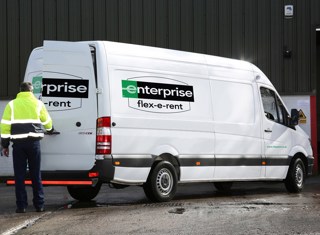A landmark verdict in the Supreme Court for a ‘gig economy’ worker is not expected to spark wider changes among companies using self-employed drivers.
A plumber working solely for Pimlico Plumbers for six years was ruled by the court to be entitled to workers’ rights to get sick and holiday pay, despite being VAT-registered and paying self-employment tax.
The employment tribunal on June 13 ruled that Gary Smith was a worker, rather than self-employed. Charlie Mullins, chief executive and founder of Pimlico Plumbers, said the decision “can only lead to a tsunami of claims”.
However, while individual tribunals are being heard and cases have been won against companies including Uber, Hermes, Addison Lee and DX Delivery, the companies themselves are not making wholesale changes to their employment business models.
Uber was recently given a probationary licence to continue operating in London for 15 months, although Transport for London’s main issue was with passenger safety, rather than the working rights of drivers.
Uber has introduced an insurance policy to cover sick pay and maternity leave, but maintains it is an app, not an employer or taxi company.
The GMB union is taking legal action against Lloyd Link and Prospect Commercials, delivery companies used by Amazon. Fleet News contacted both to ask if the Pimlico ruling would prompt changes to how they employ drivers, but they declined to comment.
Addison Lee and Hermes also would not comment on whether they were considering changing their approach to how they use self-employed driver contractors.
However, a Hermes spokesperson said: “We will carefully review the decision, but in the meantime, it’s business as usual.”
Addison Lee said it was committed to “maintaining a flexible and fair relationship with more than 3,800 drivers”.
Alan Lewis, partner at employment law specialist Irwin Mitchell, said the Pimlico Plumbers case was not a game changer for the wider industry.
He said: “The court did not take the opportunity to provide clarity around the difficult concepts of mutuality of service. This means that cases will continue to be argued on their specific facts and, for businesses that rely on self-employed contracts, that means further uncertainty.”
He said it is not necessarily a ‘win’ for gig economy workers in industries with self-employed drivers seeking to challenge their employment status.
Lewis added: “Pimlico’s plumbers do not operate a gig model and the implications for Uber, City Sprint, etc. may be limited, although the publicity around this case may encourage other ‘self-employed’ contractors to challenge their legal status.”
While companies may not be moving away from the self-employed driver model, Mullins remains convinced many drivers will challenge employment terms as a result of his company losing the appeal at the Supreme Court.
Mullins said: “This was a poor decision that will potentially leave thousands of companies, employing millions of contractors, wondering if one day soon they will get a nasty surprise.”
Mick Rix, GMB national officer, said the decision by the court vindicates what the trade union has been saying for some time. He said: “It’s not new employment laws that are needed. It is enforcement. The Government can sort this mess out by instructing HMRC to class individuals as workers unless companies can prove otherwise. It should not be up to individuals to take on powerful companies.”
HR specialist Human Capital Department said businesses claiming employees are self-employed as a tactic to avoid tax and national insurance will start to fall into line as prosecutions continue. Managing director Peter Lawrence, said: “The case has set a precedent on whether or not someone is an employee or self-employed.”
Seb Maley, Qdos Contractor chief executive, concluded: “The Pimlico verdict is a reminder of just how important it is for companies to be confident of a worker’s employment status, regardless of whether they are engaged as an employee, a gig economy worker or a self-employed contractor.”
“What matters is clarity, and that each party in the contractual chain has a mutual understanding of the worker’s employment status and the rights he or she is entitled to before the arrangement begins.”





















Login to comment
Comments
No comments have been made yet.